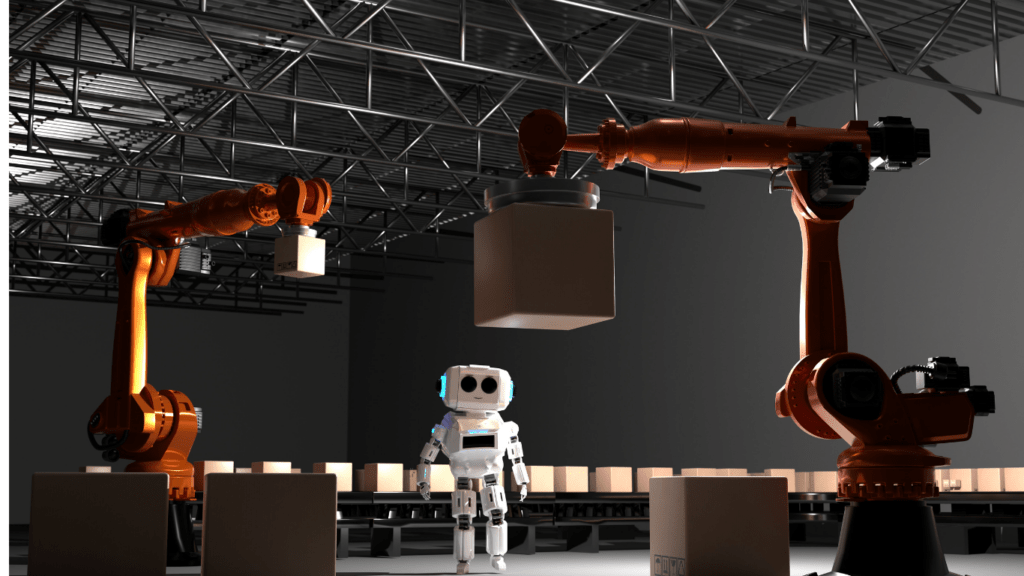The Role of AI in Modern Game Development
Enhancing Gameplay and User Experience
AI significantly enhances gameplay and user experience by enabling adaptive learning and procedural content generation.
Adaptive learning adjusts game difficulty dynamically, maintaining player engagement.
For example, AI can analyze player behavior and tailor challenges accordingly, providing a personalized gaming experience.
Procedural content generation creates vast, intricate game worlds with minimal human intervention.
This technique allows developers to craft unique environments and narratives, increasing replayability and user satisfaction.
Streamlining Development Processes
AI streamlines development processes through automated testing and asset creation.
Automated testing identifies bugs and performance issues faster than manual testing, leading to more efficient debugging cycles.
For instance, AI-driven tools can simulate thousands of gameplay hours in a fraction of the time.
Asset creation, powered by AI, reduces the need for extensive manual design.
AI models can generate textures, character models, and landscapes, accelerating production timelines and allowing developers to focus on more creative aspects of game design.
Opportunities Presented by AI in Game Development
1. Personalized Gaming Experiences
AI algorithms can analyze player behavior and preferences to tailor gaming experiences. By understanding a player’s in-game choices and styles, AI adjusts game dynamics to match individual preferences.
For instance, AI can alter difficulty levels, change story paths, and recommend in-game items.
This personalization enhances player engagement and satisfaction, fostering long-term loyalty.
Personalized suggestions and dynamic game adaptations can transform static gaming into an evolving journey that feels unique to each player.
2. Efficient Game Testing and Debugging
AI-driven tools significantly streamline game testing and debugging processes.
Automated testing systems can run through vast permutations of gameplay scenarios quickly, identifying bugs that might take human testers much longer to discover.
By simulating player behavior, these tools can uncover edge cases and performance issues, ensuring a more polished final product.
Additionally, AI can prioritize bugs based on their impact, helping developers address the most critical issues first.
This efficiency not only speeds up the development cycle but also improves the overall quality and stability of the game.
Challenges Facing AI in Game Development
Ethical Considerations and Fairness
AI in game development presents ethical challenges. Bias in AI algorithms can lead to unfair in-game advantages or disadvantages.
For example, AI-driven NPCs (Non-Player Characters) may react differently to players based on their actions, leading to an unequal experience.
Ensuring fairness requires constant monitoring and adjustment of AI models.
Transparency is also crucial. Players need to understand how AI influences their game experience to trust the system. Developers should focus on creating inclusive and unbiased AI to maintain player trust.
Technical Limitations and Dependency
- AI integration in games faces technical challenges.
- High computational power is essential for real-time AI processing, which can limit accessibility for players with lower-end hardware. For instance, advanced AI algorithms may require significant resources, impacting game performance.
- Additionally, there’s a dependency on data quality.
- Poor-quality data can lead to ineffective AI behaviors, reducing the game’s enjoyment. Developers need robust datasets to train AI models effectively.
- Balancing AI sophistication with hardware requirements and data quality remains a significant hurdle.
The Impact of AI on Game Design and Storytelling

Innovations in Narrative Techniques
AI revolutionizes game design by introducing advanced narrative techniques. Procedural storytelling allows games to create unique stories on the fly, adapting to player actions and decisions.
For example, in Bethesda’s Radiant AI system, quest structures change based on player behavior, offering varied experiences every playthrough.
Natural language processing (NLP) facilitates more interactive dialogues, making characters respond contextually to player inputs.
This results in immersive experiences, evident in games like: The Elder Scrolls V: Skyrim, where NPCs engage in more realistic conversations.
AI’s ability to analyze player data helps designers craft story arcs that resonate more with the audience, enhancing engagement and replayability.
AI-driven Dynamic Content Creation
- AI-driven systems enhance dynamic content creation, accommodating real-time changes to the game environment.
- Generative design algorithms enable developers to create expansive, detailed worlds quickly.
- Games like No Man’s Sky exemplify this, boasting procedurally generated planets offering infinite exploration possibilities.
- Machine learning models analyze player behavior, adjusting difficulty levels and mission objectives accordingly.
- For instance, in Left 4 Dead, the AI director adjusts the intensity of encounters based on player performance, ensuring an optimal challenge.
- Customizable AI frameworks allow developers to simulate complex ecosystems and behaviors, making worlds feel more alive and responsive to player actions.
This fluid adaptability makes the gaming experience more personalized and engaging.
Future Predictions for AI in Game Development
Developments in Machine Learning
Machine learning (ML) advances will significantly impact game development.
Developers will utilize ML algorithms to create more complex non-player characters (NPCs). These NPCs will adapt and learn from player actions, offering richer and more dynamic interactions.
For example, in role-playing games, NPCs could develop unique storylines based on player choices, enhancing gameplay immersion.
ML-powered analytics will further refine player engagement metrics.
Game studios will harness predictive analytics to tailor content updates and in-game events to player preferences.
This data-driven approach will elevate user retention rates and drive player satisfaction.
For instance, in multiplayer games, adaptive strategies will emerge, balancing gameplay to ensure fairness and competitiveness.
The Integration of AI with Emerging Technologies
AI’s integration with emerging technologies will redefine game development possibilities. For instance, combining AI with augmented reality (AR) and virtual reality (VR) will create more immersive experiences.
In AR-based mobile games, AI algorithms will generate context-aware content, aligning virtual elements with real-world environments. This fusion will lead to gameplay that feels more realistic and engaging.
Blockchain technology will also intersect with AI to revolutionize the in-game economy. Smart contracts and AI-driven management systems will facilitate transparent in-game transactions and asset ownership.
Players will experience secure, decentralized marketplaces where digital assets hold real-world value. Games like CryptoKitties highlight this blend, previewing future blockchain-based gaming ecosystems.
By leveraging advanced sensory hardware and AI, gesture-based controls will become standard in VR games.
Players will interact with virtual worlds through natural movements, enhancing their sense of presence and immersion.
AI-powered motion detection will translate gestures into seamless gameplay mechanics, enriching the overall user experience.
These advancements, driven by robust AI integration, will continue to push the boundaries of game development, delivering increasingly personalized and immersive gaming experiences.


 Darcy Cazaly is a key contributor at Infinity Game Saga, where he brings his expertise to the world of gaming journalism. As a dedicated member of the team, Darcy focuses on delivering in-depth articles and insightful analyses that cover a broad range of topics within the gaming industry. His work includes exploring the latest trends, dissecting game mechanics, and providing thorough reviews of new releases.
Darcy's commitment to high-quality content ensures that readers receive accurate and engaging information about the evolving gaming landscape. His writing not only informs but also enriches the gaming experience for the community, offering valuable perspectives and up-to-date news. Through his contributions, Darcy helps bridge the gap between gamers and the dynamic world of gaming technology and trends, making him an essential part of the Infinity Game Saga team.
Darcy Cazaly is a key contributor at Infinity Game Saga, where he brings his expertise to the world of gaming journalism. As a dedicated member of the team, Darcy focuses on delivering in-depth articles and insightful analyses that cover a broad range of topics within the gaming industry. His work includes exploring the latest trends, dissecting game mechanics, and providing thorough reviews of new releases.
Darcy's commitment to high-quality content ensures that readers receive accurate and engaging information about the evolving gaming landscape. His writing not only informs but also enriches the gaming experience for the community, offering valuable perspectives and up-to-date news. Through his contributions, Darcy helps bridge the gap between gamers and the dynamic world of gaming technology and trends, making him an essential part of the Infinity Game Saga team.
